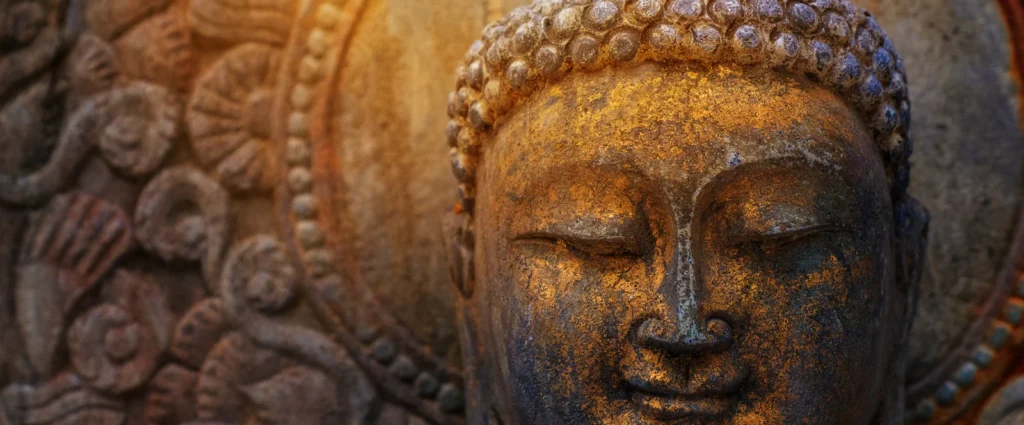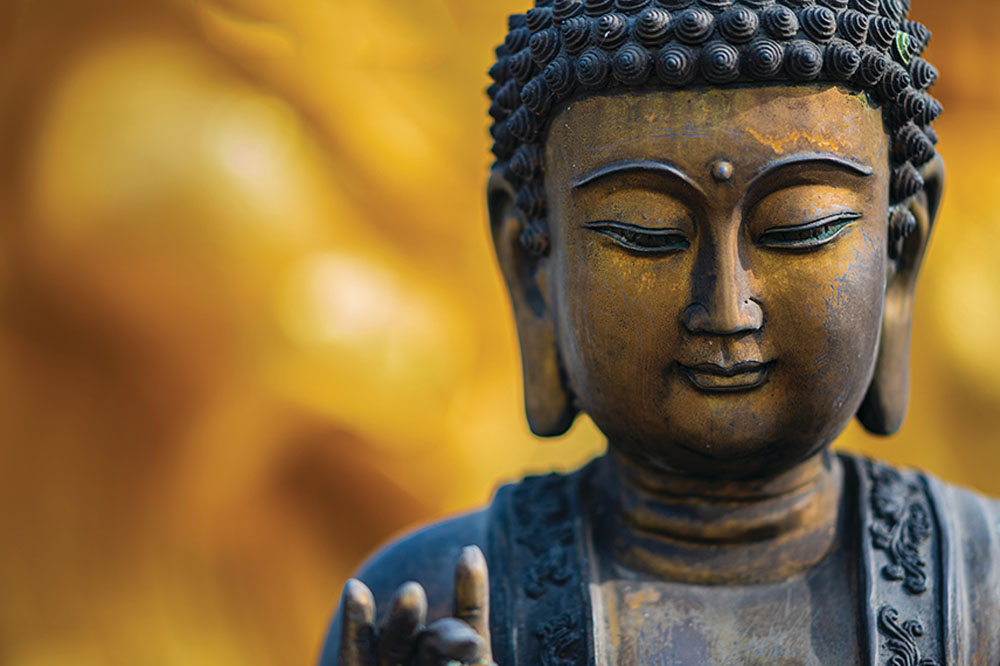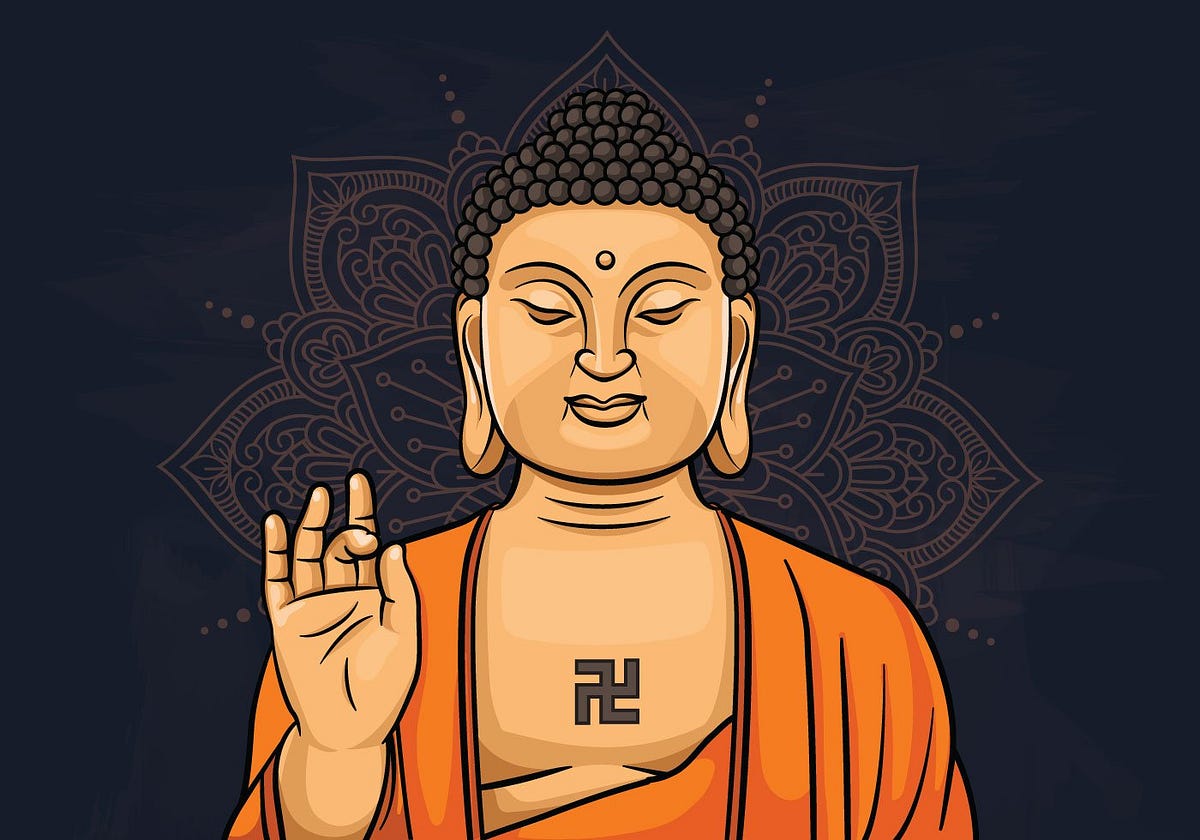The life of Gautama Buddha is filled with deep meaning. His journey from a prince to a spiritual teacher is full of valuable lessons. These teachings are not just for monks or scholars. They are for all people who seek peace, happiness, and understanding in life.
In this article, we will explore the important moments of Buddha’s life. We will also understand what lessons we can learn from them. These ideas are shared in a simple way to help you apply them in daily life. Whether you are spiritual, religious, or just curious, Buddha’s story can inspire you.
Early Life of Buddha
Gautama Buddha was born as Siddhartha Gautama around 563 BCE in Lumbini (present-day Nepal). He was born into a royal family and lived in great luxury. His father protected him from all forms of pain and suffering.
But Siddhartha was curious. At the age of 29, he saw the “Four Sights” during his travels outside the palace:
- An old man
- A sick man
- A dead body
- A holy man or monk
These sights changed his life. He realized that no one can escape old age, sickness, or death. He also saw that spiritual life could bring peace. That’s when he left his palace, wife, and child to seek the truth of life.
The Search for Truth

After leaving home, Siddhartha met many spiritual teachers. He tried hard practices like fasting and meditation. He even starved himself for weeks. But nothing gave him the answer he was looking for.
Finally, he sat under a Bodhi tree in Bodh Gaya and meditated. After many days of deep focus, he attained enlightenment. He understood the nature of suffering and how to overcome it. He became the Buddha, which means “The Awakened One.”
Also Read Timeless Wisdom: Inspirational Quotes From Spiritual Masters and Their Powerful Teachings
Main Teachings of Buddha
Buddha gave many teachings during his lifetime. But some core ideas are easy to understand and practice. Let’s look at them.
1. The Four Noble Truths
These are the foundation of Buddha’s teachings:
- Life has suffering (dukkha)
- There is a cause of suffering (desire and attachment)
- Suffering can end
- There is a path to end suffering
2. The Eightfold Path
Buddha taught a path to live a balanced and peaceful life. This path includes:
- Right view
- Right intention
- Right speech
- Right action
- Right livelihood
- Right effort
- Right mindfulness
- Right concentration
This path helps in improving both the mind and daily actions.
Lessons We Can Learn from Buddha’s Life

1. Material Wealth Doesn’t Bring Lasting Happiness
Buddha had everything—palaces, luxury, and comfort. But he still felt empty. His story shows that true happiness does not come from outside things. It comes from within.
2. Suffering is Part of Life
We cannot avoid pain, loss, or aging. Buddha teaches us to accept suffering instead of running from it. When we understand suffering, we can rise above it.
3. Compassion and Kindness are Powerful
Buddha was kind to all—humans and animals. He never judged anyone. His life tells us to treat everyone with respect, no matter their background or religion.
4. Self-Control is the Key to Growth
Buddha practiced discipline in food, thoughts, and speech. We learn that self-control helps in living a peaceful and focused life.
5. Mindfulness Helps in Daily Life
One of Buddha’s strongest teachings is to live in the present moment. Being aware of your thoughts, breath, and actions can reduce stress and bring peace.
Buddha’s Relevance in Modern India
Even after more than 2,500 years, Buddha’s teachings are still followed in India and the world. In India, places like Bodh Gaya, Sarnath, and Kushinagar are important Buddhist sites. People from all religions visit these places to feel spiritual peace.
In today’s busy world, people face stress, fear, and anxiety. Buddha’s ideas of simplicity, awareness, and kindness are very helpful. Many people now use meditation, which is based on Buddha’s teachings, to calm the mind.
FAQs – What We Can Learn from the Life of Buddha
Q1. Was Buddha a god?
No. Buddha never claimed to be a god. He was a human who reached enlightenment through deep understanding and practice. He believed everyone can achieve inner peace.
Q2. Can I follow Buddha’s teachings even if I’m not a Buddhist?
Yes. Buddha’s teachings are universal. They are about life, truth, and inner peace. People from all religions can apply his wisdom.
Q3. What is the best way to start learning from Buddha’s life?
Start with the Four Noble Truths and the Eightfold Path. Try simple meditation or mindful breathing. Also, read short stories and quotes from his life.
Q4. Where can I visit to connect with Buddha’s life in India?
You can visit Bodh Gaya (where he attained enlightenment), Sarnath (where he gave his first teaching), and Kushinagar (where he passed away). These are important spiritual sites in India.
Conclusion
Buddha’s life is not just a story from history. It is a guide for modern life. His journey teaches us how to face pain, live with mindfulness, and find inner peace.
In the fast-paced world of today, Buddha’s simple truths bring comfort and clarity. Whether you are a student, worker, or homemaker, you can use his wisdom to improve your life.
You don’t have to leave your home to find peace. You just need to turn inward. Like Buddha did—sit, observe, and understand.










